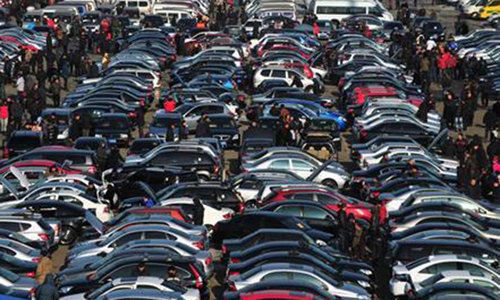KARACHI: For the first time in 15 years, auto parts vendors have finally spoken out against local vehicle assemblers over low localisation and high prices.
They pointed out various SROs especially 655(I)/2006 which have only benefited local assemblers instead of auto vendors and consumers.
On the one hand, vendors are blaming assemblers for low localisation and high vehicle prices whereas on the other, the Pakistan Automotive Parts and Accessories Manufacturers (Paapam) – body representing vendors’ interest -- proudly claims achieving localisation of 70 per cent in production in putting all responsibility on assemblers.
When questioned over this contradiction, Paapam Chairman Capt (retd) Muhammad Akram claimed that the association’s website mentions 70pc localisation for production of Suzuki Mehran – which was discontinued in April, 2019 after three decades.
The real situation in cars is different as localisation levels in 660-1,800cc cars range between 45-55pc while assemblers claim higher localisation.
Auto prices have been raised multiple times in a year on exchange rate parity. However, one dollar now sells at Rs155 as against Rs164 in June 2019, which means low costs on arrival of imported parts, he added.
“I have written a letter on low localisation, high prices and misuse of SROs to the Ministry of Industries,” Akram said while claiming that “it is first time that Paapam has dared to raise objections on the above issues especially SRO655 so far in the last 15 years.”
Auto assemblers, however, had argued over Paapam’s letter to the Ministry of Industries on above issues in the 29th Auto Industry Development Committee (AIDC) meeting held in Islamabad in November.
A participant pointed out in the meeting that neither the Engineering Development Board (EDB) nor the Ministry of Industries has the requisite mandate to intervene in business decisions and transactions between assemblers and vendors.
However, the localisation aspect and export of automotive parts and components can be discussed in detail before making final decisions. The proposal of Paapam chairman with respect to review of SRO655 was much argued by the assemblers.
The meeting decided that instead of bringing such letters for discussion in the Auto Industry Development Committee (AIDC), Paapam and Pakistan Automotive Manufacturers’ Association may jointly discuss the feasibility of proposals and discuss the same in the AIDC meeting if required.
Moreover, such matters can be discussed in the technical committee of the AIDC prior to putting it up as an agenda for the meeting. It was decided that a sub-committee would be formulated under the AIDC to submit its technical input for consideration on a case to case basis including new technologies.
Moreover, to review the inputs allowed to various companies under SRO655, a committee to streamline/cross-check inputs allowed under SROs may be formulated.
Capt Akram said the assemblers had asked me to directly contact vendors instead of involving the government.
“The price of locally assembled vehicles could have been kept low if the localisation of the parts in true sense had been carried out,” he informed the Ministry of Industries.
To facilitate localisation, the government had offered some incentives in form of duty cuts on import of raw material, sub-components and components through various SROs around a decade and half ago.
Paapam chief said the SRO655(I)/2006 extends benefit to local parts manufacturers on receipt of an order for development/local manufacturing of automotive parts for supply to concerned automotive assembling unit (AAU) and after sale. Accordingly, the parts manufacturers apply to the EDB for allowing import of raw materials/sub-components/components on concessionary rates of duty. The determining factor for allowing such imports is value addition achieved by local manufacturers for supplying the final part to the concerned AAU.
The automotive parts manufacturers (APM) on the very onset i.e. with the award of any purchase order are made to transfer all the financial benefits granted by the noted SRO to the concerned AAU thus leaving them no space for future growth/technology upgradations.
The AAU allows import of all sub-components/components at exorbitantly high prices only through their designated companies thus making the end products i.e. vehicles expensive to the extent that the market rates of these stand nowhere affordable in comparison to global pricing, he said.
As subcomponents/components are allowed for import on lesser than completely knocked down kit (CKD) tariff there remains little incentive to develop these locally. Hence, the continuous import at exorbitantly high costs eventually results in higher prices.
“The noted 15-year-old SRO655 has never gone under any update or review for achieving the objectives like encouraging localisation, promoting growth/up-gradation of APMs and supply of rationally priced vehicles to the consumers,” Paapam chief deplored.
He said that under Input Output Ratio certificate, auto part makers are allowed to import raw materials, sub components and components under concessionary rate of duties for manufacturing of parts for Honda, Suzuki, Toyota etc.
Assemblers while getting all benefits of duty cut do not pass on the benefit to end users of their products i.e. cars.
Some costly CKD parts are imported under SRO which allows imports under concessionary rates of duty, he added.
Published in Dawn, January 12th, 2020














































